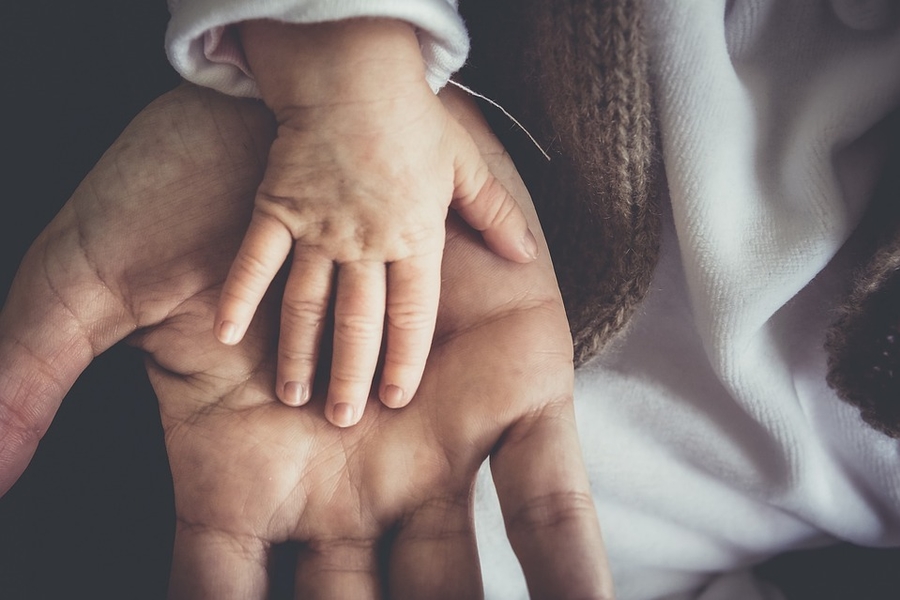
Hand Sanitisers – Are They Safe For Your Baby?
26 Feb 2020 | 4 min Read
Vidya Kanekar
Author | 27 Articles
Hand sanitisers are advertised as the best alternative to hand washing. Some brands claim that they kill as much as 99.9 per cent of bacteria, but then, do babies and hand sanitisers mix? Can you simply squeeze out a little and rub it on your or your baby’s hands to clean up the germs? Is de-germing that simple?
Studies on alcohol-based hand sanitisers have discovered that these little packs of germ killers can bring in some health issues if you are not careful about your choice of product. Read on to know more.
Hand Sanitisers – Are They Safe?
Hand sanitisers are commonly used to clean hands in situations where hand wash is not possible or convenient. They contain 60 per cent or more alcohol and are topped with fragrances to give out a pleasant smell. While alcohol is good for killing the germs, it can get absorbed in the body through the skin and go straight to the bloodstream, becoming toxic in certain amounts.
Sanitisers can harm your child even when you do not use it on their hands. Imagine a scenario where you clean your hands with a sanitiser and your child licks it. He/she will ingest the alcohol in the sanitiser, which will quickly get into their bloodstream and harm them. It could, therefore, be argued that alcohol-based hand sanitisers are not suitable for babies.

They Are Harsh on the Skin
Hand sanitisers contain many chemicals that can be very harsh on the skin. The alcohol itself dries up the upper layer of the skin and causes it to peel. Sanitisers can also cause itching and burning sensation, which is a big no-no for babies and their sensitive skin. An organic hand sanitiser can solve this problem by moisturising the hands while cleaning them.
Fragrance Is Also an Issue
Some sanitisers available in the market use harmful chemicals to create an appealing smell. These chemicals are capable of triggering asthma in children. This kind of respiratory reaction to hand sanitisers is similar to other products like lotions, skin creams, home cleaning products, and other items that contain artificial/synthetic fragrance. In order to avoid this problem, you need a baby-safe hand sanitiser that uses natural ingredients.
BabyChakra Hand Sanitiser
BabyChakra understands how important the safety of your baby is. If you are looking for a baby-friendly hand sanitiser to disinfect your baby, yourself, and the 10,001 toys that are hiding under the sofa, BabyChakra has the solution.
BabyChakra Pure Hand Sanitiser is India’s first and only baby-safe sanitiser that has 0% alcohol. It is toxin-free, antibacterial, antimicrobial, and comes with a full recommendation from paediatricians. This natural hand sanitiser is gentle on your child’s skin while also fighting off bacteria and viruses.
BabyChakra Hand Sanitiser is made up of mango, coconut, lemon, and aloe vera. This hydrating hand sanitiser has a delicious smell and is also fully edible, so it will be safe if your child licks his hand. It is perfectly safe to be used with infants, kids, and it is also pregnancy-safe. BabyChakra Natural Hand Sanitiser is your answer to all the unwanted diseases that may come knocking any time like cough, diarrhoea, and conjunctivitis.
Takeaway
More and more research these days is illustrating the harmful effects of alcohol and other chemicals, making a toxin-free method of germ prevention for kids every parent’s number one priority. Find and invest in a natural hand sanitiser to shield your children from harmful chemicals.
Visit the BabyChakra website to read more about this product and add it to your baby bag.
A


Related Topics for you
Suggestions offered by doctors on BabyChakra are of advisory nature i.e., for educational and informational purposes only. Content posted on, created for, or compiled by BabyChakra is not intended or designed to replace your doctor's independent judgment about any symptom, condition, or the appropriateness or risks of a procedure or treatment for a given person.

